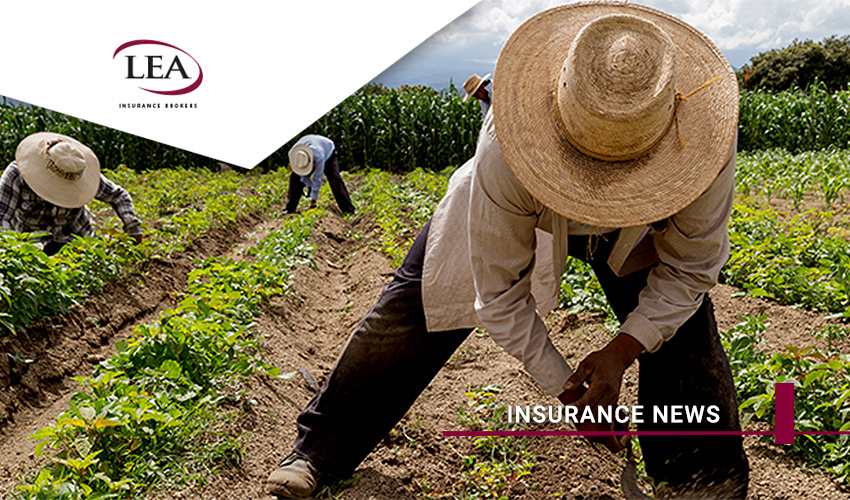
Get up to speed on the new ASEAN agricultural visa
Farmers will soon have another option to tackle their labour woes thanks to the Federal Government’s commitment to introduce a new seasonal agricultural worker visa. It will allow farmers to source workers from 10 South-East Asian countries: Indonesia, Myanmar, Vietnam, Singapore, the Philippines, Malaysia, Thailand, Laos, Brunei and Cambodia.
The visa is in addition to the Pacific Island labour scheme, with more than 24,000 workers at the ready for seasonal work in Australia. Both this scheme and the above new one are offering more flexibility and less red tape to better respond to employers’ and workers’ needs.
As well, the government has also removed the need for British backpackers to work for 88 days on Australian farms as part of their working holiday visa. It’s part of the UK free-trade agreement and is two-way, so it paves the way for Aussies to work on farms there. However, critics have said this move means the visa change means 10,000 fewer farmworkers would come to our shores from the UK.
ASEAN seasonal agricultural visa: the fine print
The new Australian (ASEAN) agriculture visa will be available to workers in agriculture, meat processing, fisheries and forestry. They can be skilled/qualified, semi-skilled, or unskilled and should do agricultural work for the bulk of their time here, with criteria still being developed.
The ASEAN visa will allow citizens of those countries to work in Australia for up to nine months a year over three years. However, they’ll need to return home each year for a minimum of three months. The visa would be available over five years.
So, when will the visa be available? That’s a bit unclear. A joint ministerial media release says regulations to create the visa would be in place by September end, with the full implementation in three years. One condition is that workers’ home countries may need to have reached specific vaccination rates. Meanwhile, the Minister for Agriculture and Northern Australia, David Littleproud, said the visa would be in place before the end of this year – cold comfort if your farm needs workers for the spring harvest season. Check this government website for updates.
What the visa means to farmers
The visa will be a breath of fresh air to those farmers who’ve had to plough their produce, destock or reduce operations due to the worker shortage. As well, your farming operations won’t have to sponsor workers from the ASEAN countries to solve your worker shortage.
If particular workers prove their worth, the visa could be a pathway to them gaining permanent residency, according to the National Farmers’ Federation, but the government needs to release more details about this possibility. The visa will be designed to allow farmworkers to move from farm to farm, following the harvest trail.
Responsibilities to migrant workers
After a spate of media coverage about cases of underpaid and exploited farmworkers, the Federal Government wants to ensure the new visa will protect workers and won’t be misused. It says the pay, conditions, workplace health and safety regulations will be in line with the seasonal worker program. Here is the Fair Work Ombudsman’s update about pay and piece rates for horticultural workers. Casual workers on the harvest trail on an hourly rate should earn at least $25.41 per hour.
As well, make sure you abide by workplace/occupational health and safety laws that apply to employers of migrant workers. Safe Work Australia highlights farms must pay workers’ compensation for their workers even if they’re on a temporary visa. Other employer obligations include:
- Instructing or demonstrating to workers how to do their job safely
- Having a ‘buddy’ or supervisor to watch out for the worker
- Only having them do work that doesn’t need a special licence – think crane or forklift, for example, unless the worker has that qualification
- Providing the right tools and equipment for safe working
- Giving safety equipment when needed for the work.
Of course, your workplace will also need to follow public health orders, such as the many we have during the pandemic. Hopefully, states such as Queensland may have made some progress in allowing more on-farm quarantining, too. Governments have not mandated compulsory vaccinations for farm workers and seem unlikely to do so. However, under workplace health and safety laws, you must eliminate, or where not possible to do so, minimise COVID-19 exposure risks in your workplace.
Keep in mind the Federal Government is rolling out a $4.6 million program over four years to help agricultural employers. It’s focused on adopted best-practice workforce management and planning as well as attracting and retaining employees. You can find out more about the AgFAIR program here.
Useful links:
For updates about the new ASEAN seasonal agricultural worker visa, visit
